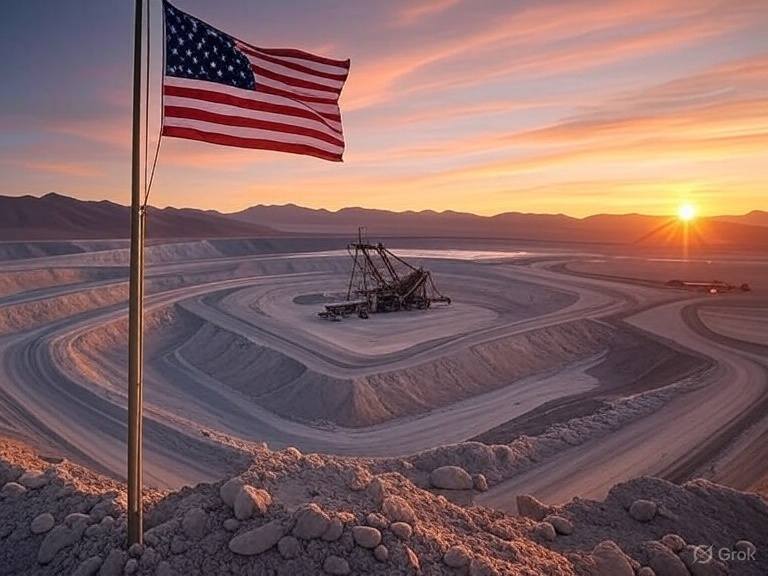What Happened
A major lithium mine in Nevada just hit the brakes. Ioneer Corp. agreed to delay initial construction on their Rhyolite Ridge lithium-boron project in Esmeralda County until at least March 2026. This wasn’t supposed to happen. The federal government had just approved this mine last year as part of then-President Biden’s push for green energy.
The reason for the delay tells you everything you need to know about government planning versus real-world economics. Ioneer lost its biggest investor in February when South Africa-based Sibanye-Stillwater scrapped its planned $490 million investment in the project, due in part to plummeting lithium prices.
The Numbers Don’t Lie
Here’s what happened to lithium prices. Lithium prices have fallen more than 80% since their peak in 2022. Think about that for a minute. Benchmark Mineral Intelligence said average lithium prices soared to nearly $80,000 per tonne globally in December 2022, before hitting around $9,000 per tonne this July.
That’s like buying a house for $400,000 and watching it drop to $80,000 in two and a half years. No wonder investors are running for the hills.
Why This Matters to Conservatives
This story perfectly shows why limited government folks should be worried about Washington picking winners and losers in the economy. The feds threw their weight behind this mine. They approved permits. Ioneer secured a $996 million federal loan from the Department of Energy following federal approval of the mine. That’s almost a billion dollars of taxpayer money backing a project that can’t survive basic market forces.
This isn’t just about one mine in Nevada. Low lithium prices have forced a raft of companies to pause or delay spending on projects from Quebec to South Carolina and Argentina to Australia. The entire green energy supply chain that politicians promised us is falling apart when it meets reality.
Think about your neighbor who runs a small business. They don’t get billion-dollar government loans. They have to make their numbers work or they go under. But when the government decides an industry is important for political reasons, suddenly taxpayers are on the hook for massive loans to companies that might not survive normal market conditions.
What the Other Side Says
Supporters argue this is just short-term volatility. Mining companies and analysts anticipate that demand for lithium will rise over the next decade due to the increasing adoption of electric vehicles and renewable energy storage technologies. They say we need domestic lithium production for national security.
Environmental groups that usually fight mining projects are split on this one. Some oppose it because of an endangered wildflower. Others support it because they want electric car batteries made in America instead of China.
The Bigger Picture
This delay comes at an awkward time for the green energy agenda. Electric car sales are slowing down. People aren’t buying them as fast as politicians hoped. Meanwhile, analysts expect lithium prices to remain volatile in 2025.
Rhyolite Ridge in Nevada is one of the only two major known global deposits of lithium-boron. The company planned to make money from both lithium and boron, which is used in glass and cleaning products. This was supposed to protect them when lithium prices dropped. It didn’t work.
What’s Next
The company still says they’ll build the mine eventually. Ioneer said the company is still expecting production to start in 2028, following a three-year construction period once the company makes a final investment decision to green light the project. But that depends on finding new investors to replace the $490 million that walked away.
Meanwhile, taxpayers are still on the hook for that billion-dollar federal loan. What happens if lithium prices stay low and the mine never gets built? Who pays then?
The free market just gave us a lesson about the difference between political promises and economic reality. The question is whether Washington will learn from it or just throw more taxpayer money at the problem.
This article was written with the assistance of AI. Please verify information and consult additional sources as needed.



